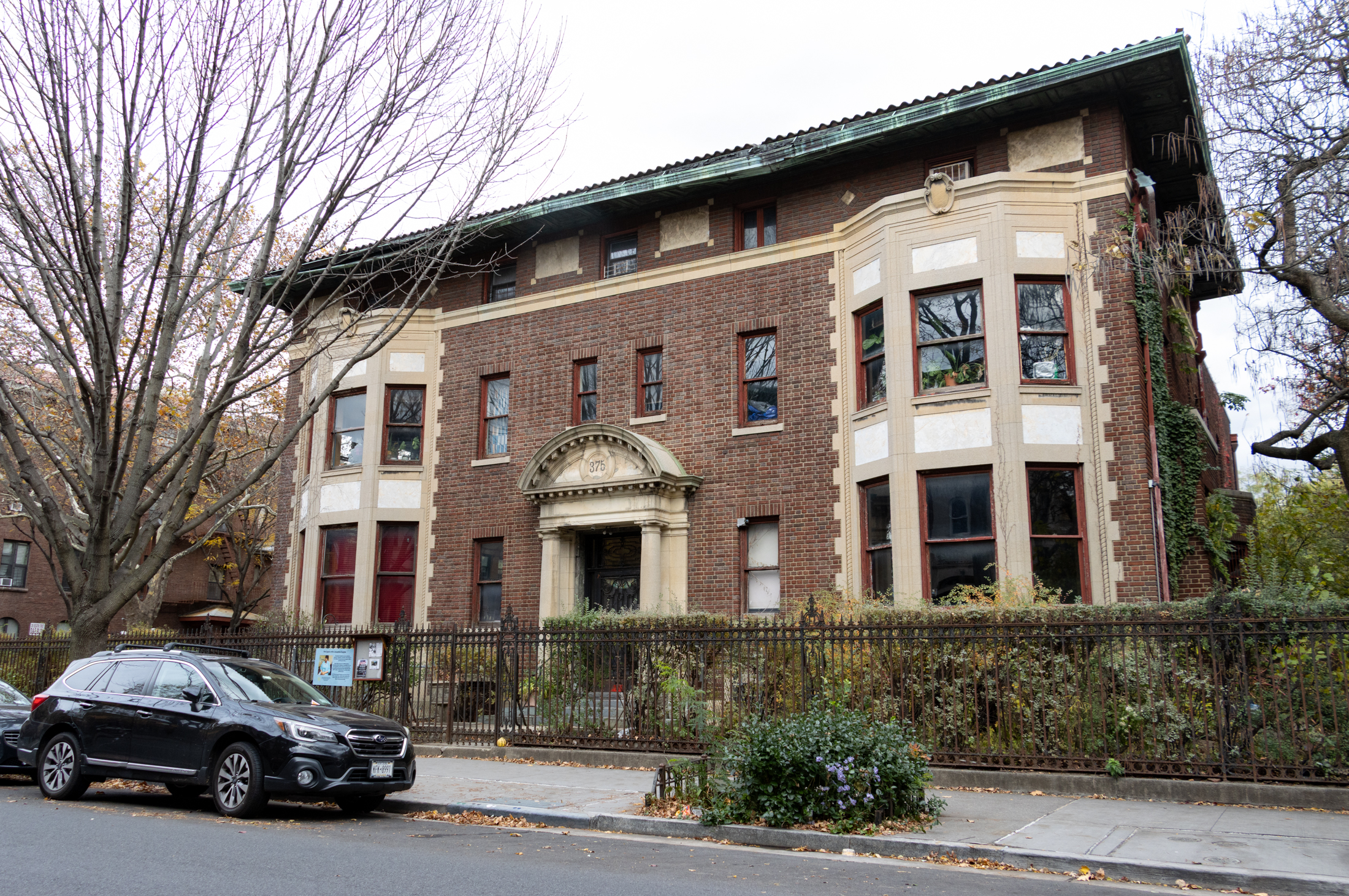Tenants Fight Eviction on Bergen Street
A Prospect Heights block party yesterday had homemade food, loud music and a louder message: Good neighbors do not evict neighbors. The Fifth Avenue Committee-organized event was aimed at drawing attention to the plight of four rent-stabilized tenants facing eviction from 533 Bergen Street, and it highlighted bubbling tensions over affordable housing, gentrification and Atlantic…


A Prospect Heights block party yesterday had homemade food, loud music and a louder message: Good neighbors do not evict neighbors. The Fifth Avenue Committee-organized event was aimed at drawing attention to the plight of four rent-stabilized tenants facing eviction from 533 Bergen Street, and it highlighted bubbling tensions over affordable housing, gentrification and Atlantic Yards. Councilmember Letitia James, State Senator Velmanette Montgomery and various activists spoke in support of the longtime tenants, who are fighting lawsuits from 533 Bergen’s new owners. The two couples that bought the building last year—Dan Bailey and Felicity Loughrey, along with Deanne Cheuk and Andre Wiesmayr—claim they want to evict the tenants because Bailey and Loughrey intend to construct a triplex for themselves out of the units. Under current laws, landlords of rent-stabilized buildings are allowed to evict tenants if they plan to live in the units themselves.
Most speakers called for reforming rent-regulation laws and maintaining affordability for low-income residents. Rents in Prospect Heights are increasingly beyond the means of most working-class families, said Councilmember James. We must preserve this community’s diversity. James and Senator Montgomery both characterized the push to evict 533 Bergen’s tenants as secondary displacement from Atlantic Yards. Brent Meltzer, a lawyer with South Brooklyn Legal Services who is representing one of the tenants, noted that if the landlords succeed with the evictions, 3,500 square feet that four families live in will be given over to just one family. The most basic articulation of the situation, however, came from Rosa Negron, one of 533 Bergen’s residents: How you going to evict people who’ve been living here all these years?





These buildings were orginally constructed as apartment houses and have always been used as such so the “house” argument is a complete red herring.
If the government wants to subsidize housing, it should.
Private citizens should not have to subsidize other private citizens who lucked out and rented “regulated” apartments years ago.
I, for expample, have a rent stabilized tenant who has shown me his stock portfolio of over 1 million dollars, but he loves his cheap rental and will never move.
You folks who support NYC rent laws have good intentions, but don’t understand the details.
Why should folks who don’t want to work be able to live off welfare in rent controlled privately owned housing? It’s frigging nuts!
11.48;
That is exactly what this is going to come down to. Tish and company are simply trying to help these tenants pump up the price for their leaving.
This is the cost of doing business in NY with these arcane rent control laws, and why housing here is so decript and costly.
The sooner rent control is done away with, the better. Until done, we’ll continue to have these shake-downs, er, excuse me, “protests”.
10:54 Kudos for nailing down some of the reasons for rent controls, but you’re way off in arguing that some utopian free market existed before them. The extensive fights over tenement conditions in the latter 19th and early 20th centuries bespeak a more sordid history. Absentee landlords in particular often failed to maintain buildings until the city was compelled to intervene. Even then, many landlords simply abandoned the buildings rather than meet the modest standards. Certainly, the owner of a building should have many rights, but the public can lay claim to some as well, including the welfare of tenants.
The frequent attempt on these boards to boil down all urban woes to government ‘interference with the market’ is both ahistorical and ingenuous.
I wonder if these buyers have considered taking the money they’ll be giving their attorneys and using it to buy out the tenants?
Oops, sorry. I’ve re-read your post and see your point.
11.13
“Your comparison of this case with the appalling human rights abuses of Iran is outrageous”
Huh? Exactly where did I do that?
I ask that you reread my post. I was taking these people to task on their logic. These two previous posters’ point is that full compliance with the law is not enough. They proposed that these owners should also have to stand for a further “moral” review.
I stand by my statements. This is a country of laws. If they want to see how a system works where the law is not the final word, but rather that of a “moral” court, I commend that they examine the nation of Iran.
Let them eat cake!
“Apartments didn’t become dumps until rent control, because it was simply not profitable to do any renovation or repairs.”
You obviously have not taken a tour of the Lower East Side Tenement Museum. Furthermore, it is profitable for a landlord to make repairs. Any major capital improvements get charged to the tenants as a permanent rent increase.